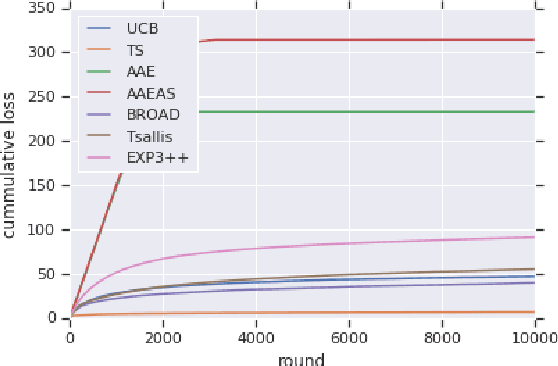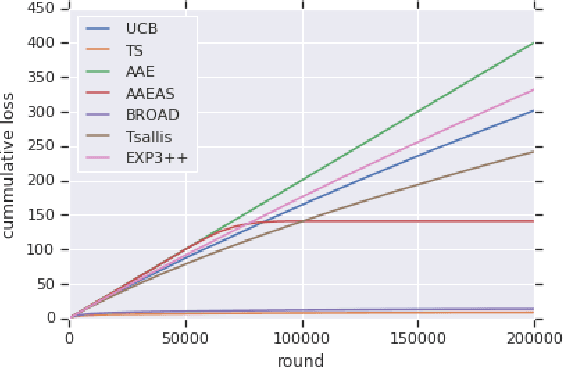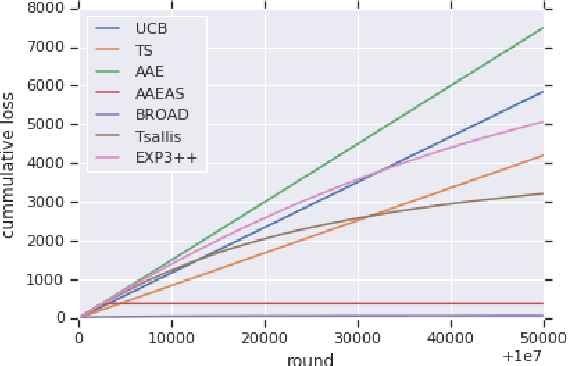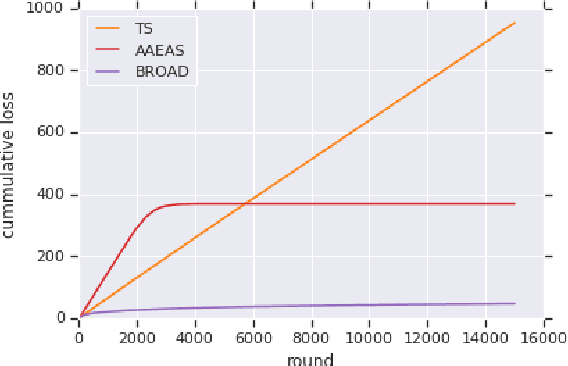Bandits with adversarial scaling
Paper and Code
Mar 04, 2020



We study "adversarial scaling", a multi-armed bandit model where rewards have a stochastic and an adversarial component. Our model captures display advertising where the "click-through-rate" can be decomposed to a (fixed across time) arm-quality component and a non-stochastic user-relevance component (fixed across arms). Despite the relative stochasticity of our model, we demonstrate two settings where most bandit algorithms suffer. On the positive side, we show that two algorithms, one from the action elimination and one from the mirror descent family are adaptive enough to be robust to adversarial scaling. Our results shed light on the robustness of adaptive parameter selection in stochastic bandits, which may be of independent interest.
 Add to Chrome
Add to Chrome Add to Firefox
Add to Firefox Add to Edge
Add to Edge